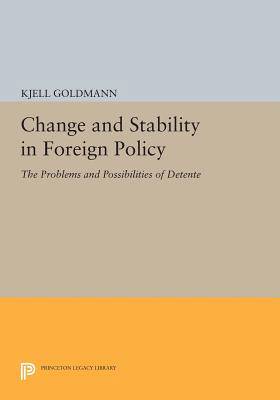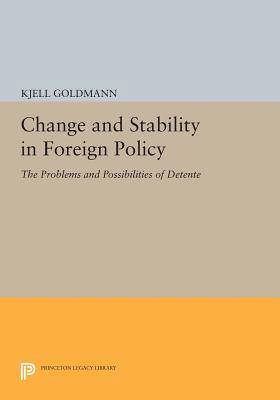
- Afhalen na 1 uur in een winkel met voorraad
- Gratis thuislevering in België vanaf € 30
- Ruim aanbod met 7 miljoen producten
- Afhalen na 1 uur in een winkel met voorraad
- Gratis thuislevering in België vanaf € 30
- Ruim aanbod met 7 miljoen producten
Omschrijving
Assume that a nation is pursuing a given foreign policy and that we are concerned with the way in which it will act in the future. We may want to make a forecast--but then to what extent is the present policy of a nation a valid guide to its future behavior? Or we may want to influence the nation to change its course--can we succeed? In other words, will the policy change or persist in the face of new conditions or negative feedback? Kjell Goldmann identifies the factors that may have an impact on whether a specific foreign policy is likely to endure or to change and develops them into a theory of foreign policy stability. He then uses this theory to explore the reasons why West German-Soviet detente during the 1970s proved to be more enduring than the improvement in relations between the United States and the Soviet Union. Finally, he outlines a hypothetical scenario for a fully successful process of detente stabilization and examines the extent to which this scenario is realistic. The book ends with some thought about how to conduct a policy aimed at stable detente with an adversary.
Originally published in 1988. The Princeton Legacy Library uses the latest print-on-demand technology to again make available previously out-of-print books from the distinguished backlist of Princeton University Press. These editions preserve the original texts of these important books while presenting them in durable paperback and hardcover editions. The goal of the Princeton Legacy Library is to vastly increase access to the rich scholarly heritage found in the thousands of books published by Princeton University Press since its founding in 1905.Specificaties
Betrokkenen
- Auteur(s):
- Uitgeverij:
Inhoud
- Aantal bladzijden:
- 270
- Taal:
- Engels
- Reeks:
- Reeksnummer:
- nr. 938
Eigenschappen
- Productcode (EAN):
- 9780691601489
- Verschijningsdatum:
- 14/07/2014
- Uitvoering:
- Paperback
- Formaat:
- Trade paperback (VS)
- Afmetingen:
- 178 mm x 254 mm
- Gewicht:
- 476 g

Alleen bij Standaard Boekhandel
Beoordelingen
We publiceren alleen reviews die voldoen aan de voorwaarden voor reviews. Bekijk onze voorwaarden voor reviews.









